|
In addition to the carnage on the battlefield during the First World War there were other casualties, this time to businesses and families on the Home Front. The need for manpower was so great that men were taken away from their farms, businesses and factories to replace those killed or rendered incapable of doing so unless they had been granted exemption because of a conscientious objection, disability, family grounds (looking after dependents) or economic grounds (preserving a business) . A man called up for service could appeal to a local tribunal formed by a borough, urban or rural district council for exemption from compulsory military service which could and if this appeal was turned down they could apply to a County Appeals Tribunal. Those who applied for exemption were also reassessed and if their situation changed, they might have found their argument for exemption rejected at a subsequent hearing.
The panels were usually made up of eight or nine local dignitaries, mostly men who did not have much in the way of legal experience and someone from the military, often a retired military officer or the local recruiting officer. The proceedings of the County Appeals Tribunals were usually reported in local papers but names were not always reported.
After the war almost all the tribunal papers were destroyed, probably to prevent an exemption from service following an individual around for the rest of his life and also, because many of those sitting on tribunals were from the same community, to prevent them being reminded that they were responsible for sending a man to his death. However, about 11,000 Northamptonshire case records escaped destruction and are stored at the Northamptonshire Record Office where they can be seen on application. Meanwhile, the extracts seen here are a small example of cases affecting Burton Latimer men and their families.
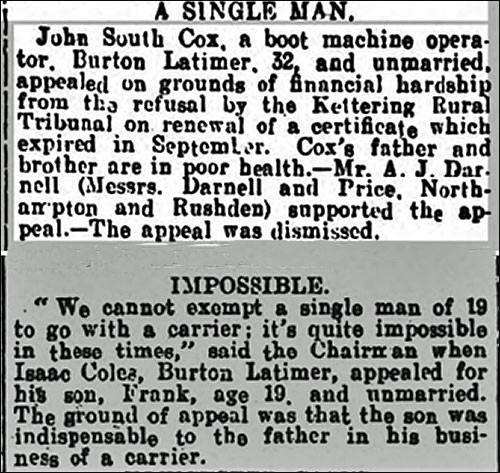 |
BOOT PROFITS AND A FARM
Mr. H.W. Williams supported the appeal of Mr. Henry Whitney, shoe manufacturer, Burton Latimer, from the decision of the Wellingborough Tribunal concerning his son-in-law, William Norton, who is managing his farm of 262 acres, of which 176 are arable, at Orlingbury.
Mr. Williams said Mr. Whitney bought a farm of 125 acres in November, 1915, and Norton was married in March last. The other land was rented.
Captain Cook (Military representative): Was it purchased out of excess profits? - Mr. Williams: No, after excess profits were paid I doubt Mr. Whitney is providing a good deal in profits. - Mr. Marlow: Out of the farm then? Mr. Williams: No, I think that is where some of the profits are going (Laughter). Mr. Williams added that Mr. Whitney knew nothing of farming and besides Norton, there were only four men on the holding. Mr. Thring (Agricultural representative) said under the scale there should be six men. Exemption was given to May 1 final.
Northampton Daily Echo Tuesday February 20, 1917
|
|
John Cox and Frank Coles lost their appeals in October 1916
|
|
|
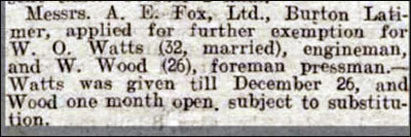 |
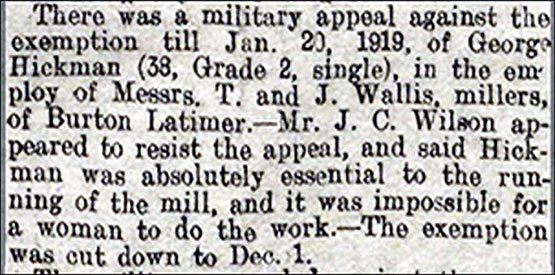 |
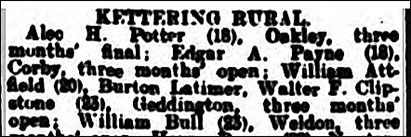 |
A.E.Fox, leather dressers, applied for the exemption
of W.O.Watts and W. Wood - Northampton Mercury 14 Sep
1917 and William Attfield, farmer, was given three
months exemption - Northampton Echo 23 May 1918
|
T.and J. Wallis , millers, Station Road, successfully applied for the exemption of
George Hickman. - Northampton Mercury 6 September 1918. This would have been
the last of a succession of appeals as the war ended two months later |
|
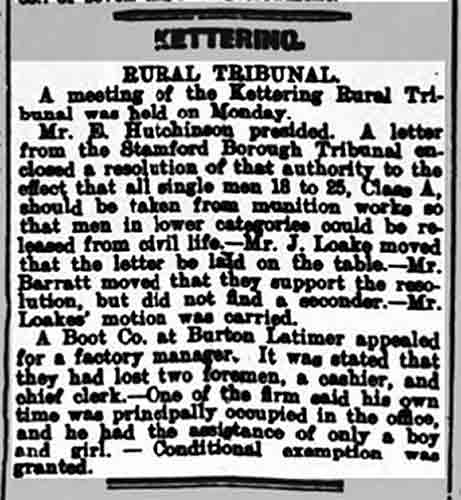 |
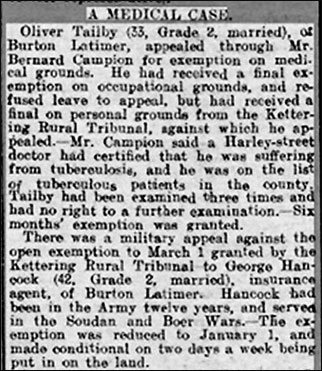 |
This report from the Northampton Mercury 28 Aug 1917
is connected to that on the right. Although not named,
here, it is almost certain to refer to Oliver Tailby who
went on to be appointed a director at Whitney &
Westley, boot & shoe manufacturers, the following year.
|
Oliver Tailby was previously exempted on
occupational grounds - when that expired he
successfully appealed on personal grounds.
42 year-old Boer War veteran George Hancock
was made to work two days a week on the land
|
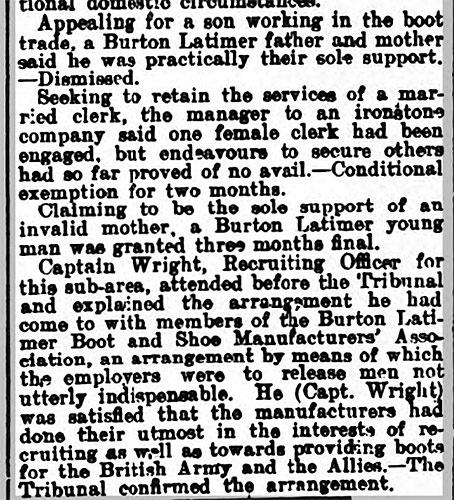 |
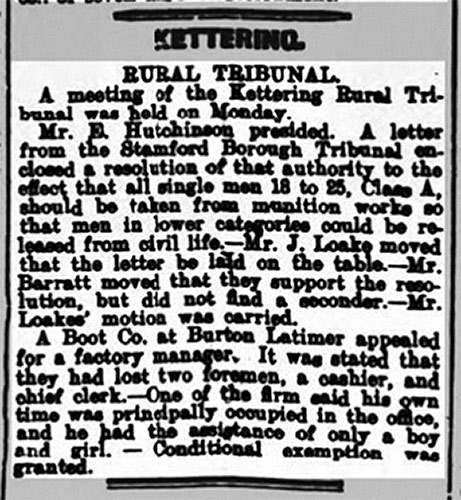 |
|
Northampton Daily Echo 15 August 1915 - No names were made
public in these cases which involved both the ironstone and boot
and shoe industries
|
Northampton Daily Echo 4 Oct 1917 - Mr. Barratt, menioned above,
was a Burton Latimer representative on the tribunal
|
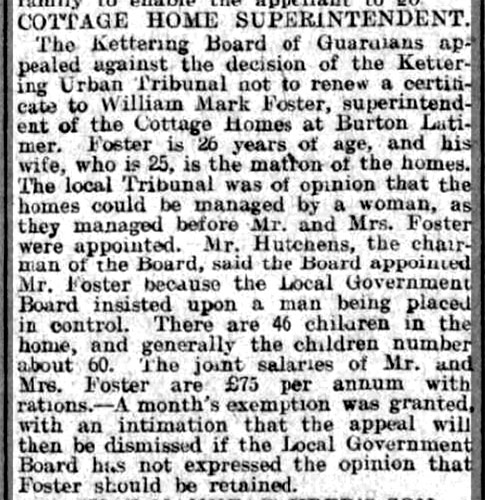 |
Mark Foster, superintendant at the Cottage Homes was backed by the
Kettering Guardians but was eventually conscripted - Northampton
Mercury June 23 1916
|
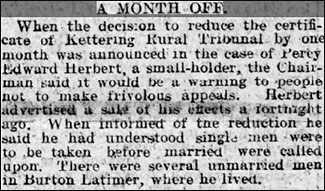 |
Percy Herbert seems to have upset the tribunal
enough for it to have taken a month off the
time originally granted
Northampton Daily Echo 5 August 1916
|
|